Are you facing issues with your building's maintenance? Whether it's a leaky faucet, faulty lights, or a squeaky door, sending a well-structured maintenance request can make all the difference. In this guide, we'll walk you through an easy-to-use letter template that ensures your concerns are addressed swiftly and effectively. So, let's dive into the essentials of crafting that perfect maintenance request!
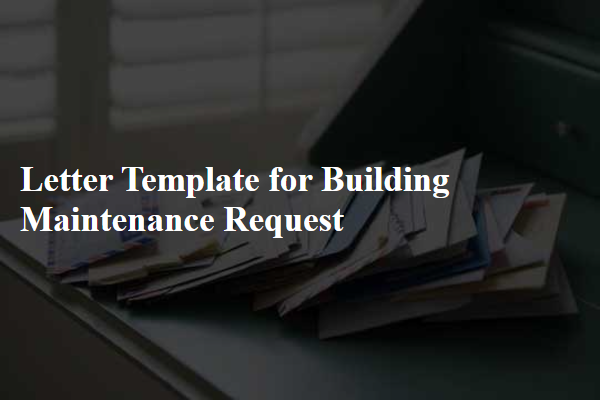
Clear description of the issue
A malfunctioning heating system can significantly disrupt comfort levels in residential buildings, particularly during winter months. For instance, a heating unit that fails to heat adequately may result in indoor temperatures dropping below 15 degrees Celsius, leading to discomfort and potential health risks. Residents of the Pine Grove Apartments, located at 123 Maple Street, have reported issues with the central heating system, including unusual noises and inconsistent temperature levels in various rooms. Regular maintenance checks are crucial to ensure functionality, as unaddressed issues can lead to further damage, higher repair costs, and tenant dissatisfaction. Prompt attention to this matter is essential to maintain a safe and comfortable living environment.
Urgency level
A building maintenance request must clearly communicate urgency levels regarding repairs needed in residential or commercial properties. Significant issues include leaking pipes, which can lead to water damage and mold growth if not addressed promptly, especially in multi-story buildings. Elevator malfunctions in high-rise structures can significantly impede access, creating safety concerns for residents and tenants. Broken windows pose security risks, particularly in urban areas, and should be marked as urgent to prevent break-ins. Electrical issues may result in power outages or fire hazards, warranting immediate attention. Prioritizing repairs based on safety, potential damage, and impact on occupants ensures that maintenance staff can address the most pressing concerns first.
Specific location details
Building maintenance requests require specific location details to ensure efficient service. For instance, requestors should provide the building name, like Evergreen Towers, located at 123 Oak Street, and specify the unit number, such as Apartment 45B. Essential details include the floor level, for example, the fifth floor, and any particular room or area needing attention, like the communal restrooms. Furthermore, mentioning nearby landmarks, such as the City Park, can help maintenance staff easily navigate to the requested location. Clear descriptions of the issue, such as a leaking faucet in the kitchen or broken lights in the hallway, enhance communication and expedite response times.
Contact information
Contact information for building maintenance requests typically includes essential details such as the name of the requester, a current email address for reliable communication, and a phone number (preferably mobile) to ensure prompt responses. Additionally, specifying the location within the building, such as the floor number or suite number, is vital for maintenance teams to quickly identify and address the concerned area. Including the building name, often found in commercial properties or apartment complexes, adds clarity. Timely communication can significantly enhance the efficiency of maintenance operations and ensure that issues are resolved swiftly.
Preferred time for maintenance access
Building maintenance requests are crucial for ensuring the safety and functionality of residential or commercial spaces. Timely maintenance can prevent larger issues from arising, such as structural damage or operational inefficiencies. Common maintenance tasks include plumbing repairs, HVAC servicing, and electrical inspections. Scheduling preferred access times can significantly enhance the convenience for residents or tenants, ensuring minimal disruption to daily activities. Clear communication regarding availability is essential, as it allows maintenance teams to effectively plan their workflow, resulting in quicker resolution of issues and improved tenant satisfaction. For example, during office hours (9 AM to 5 PM) or after-hours access (6 PM to 8 PM) may suit different types of properties or tenant needs.

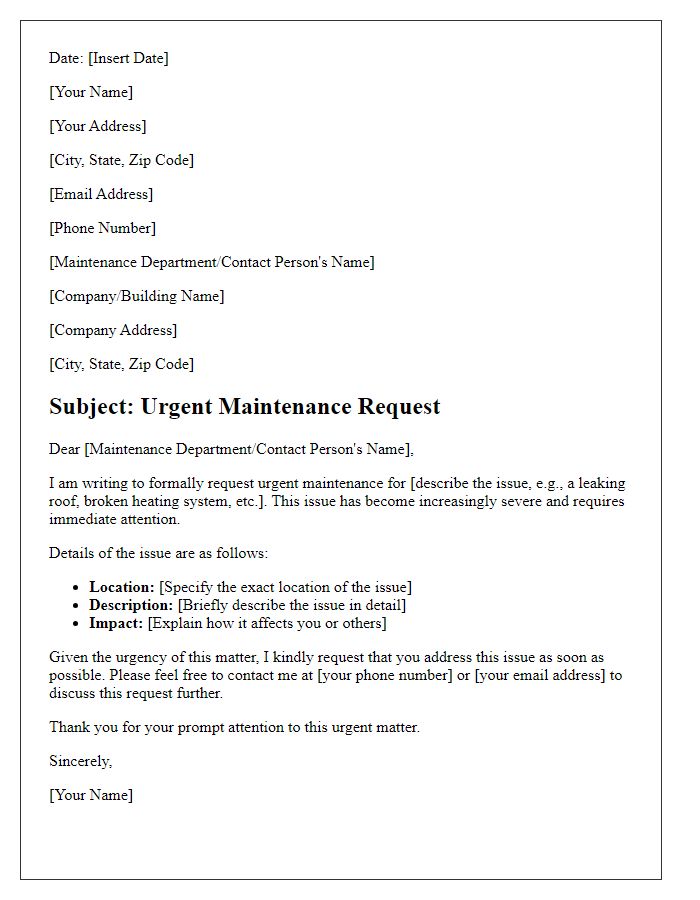
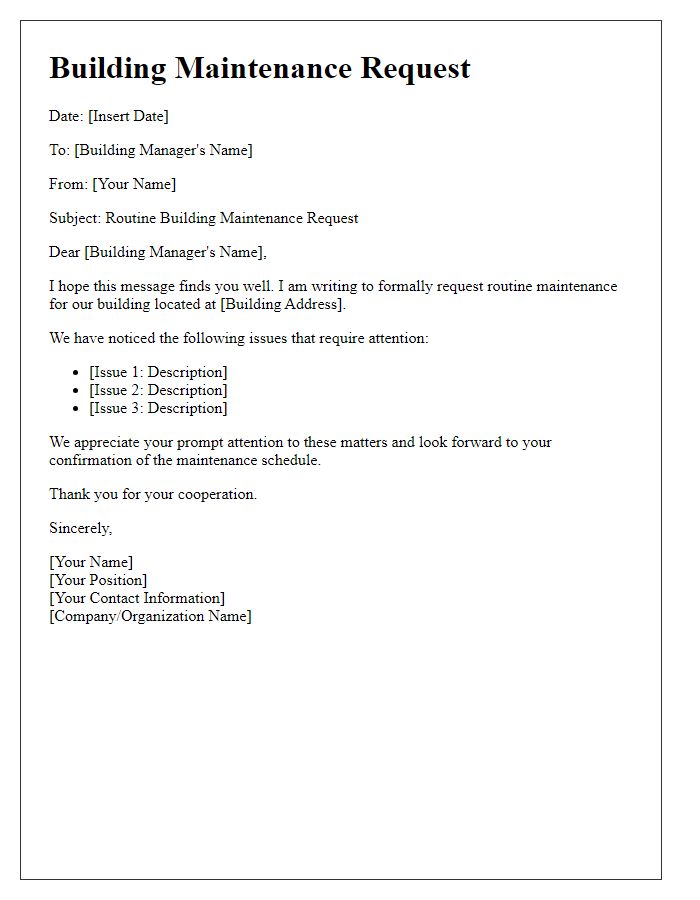
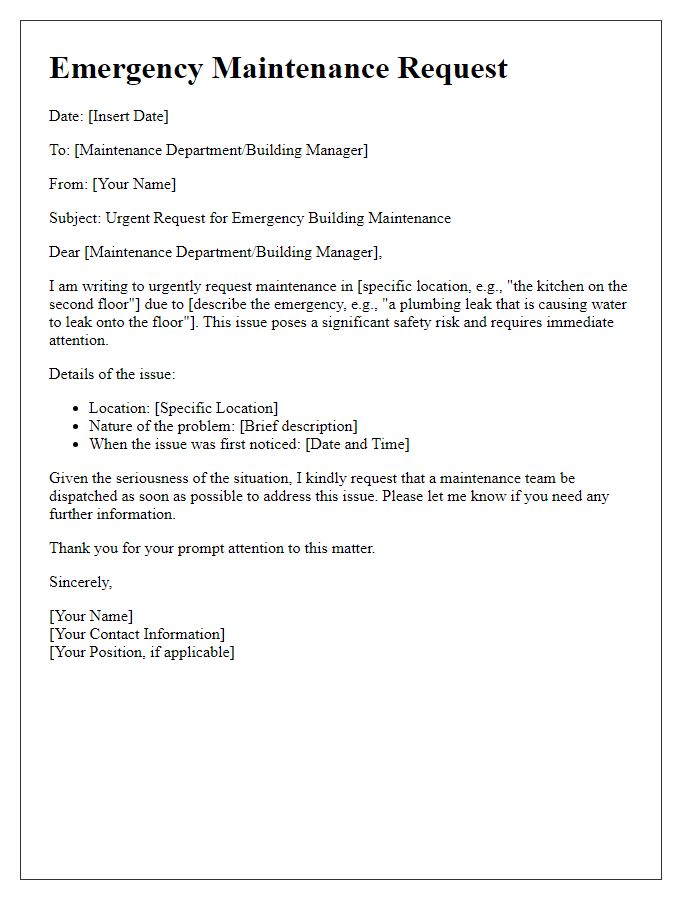
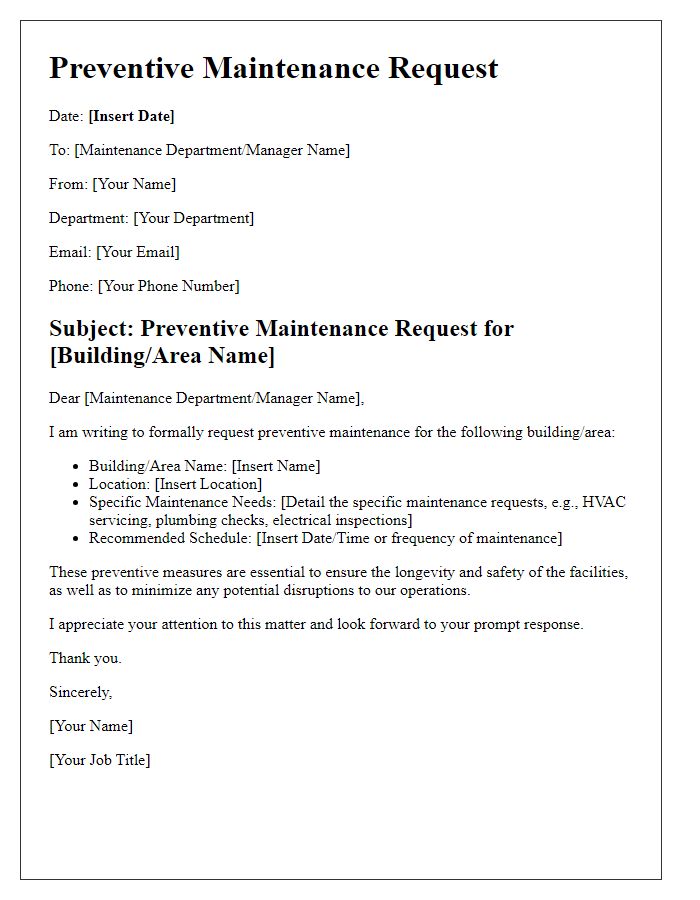
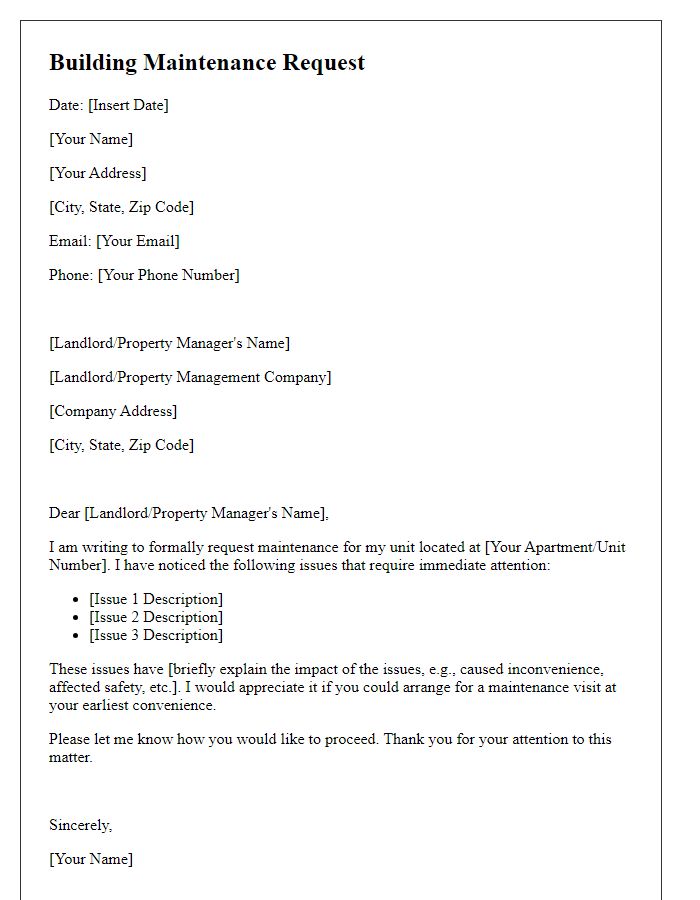
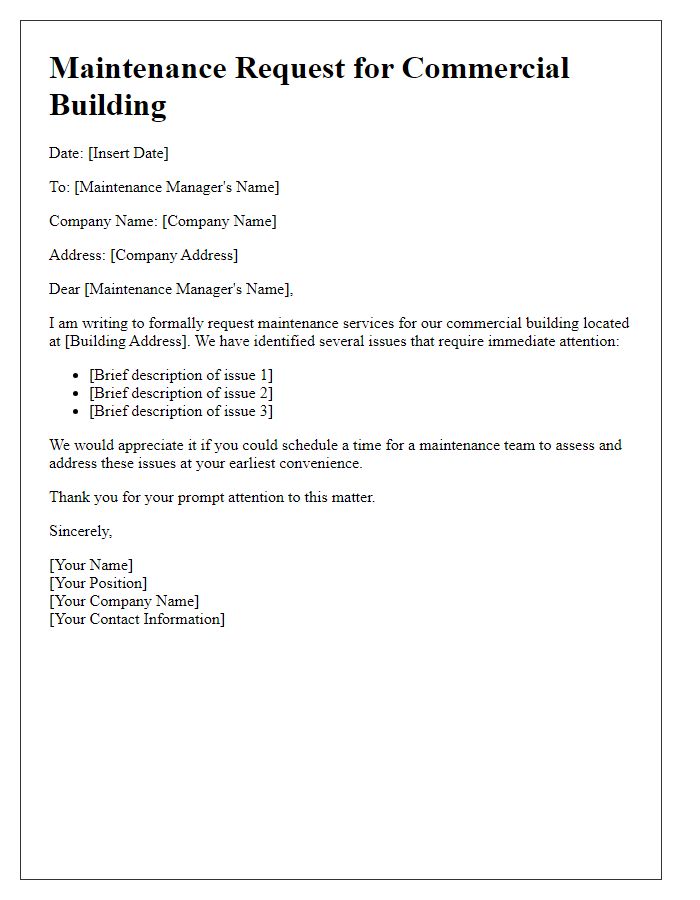
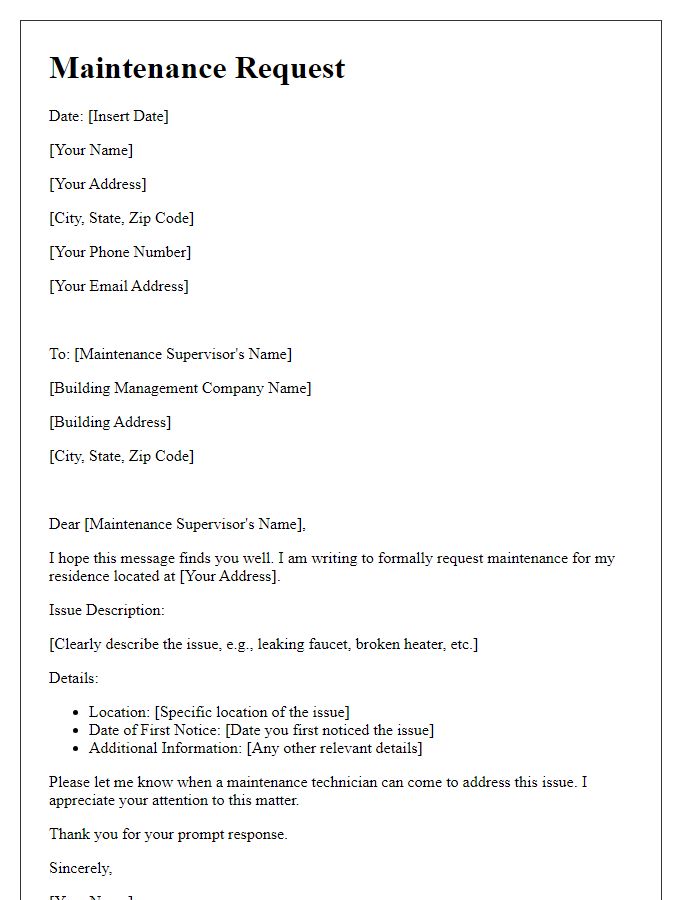
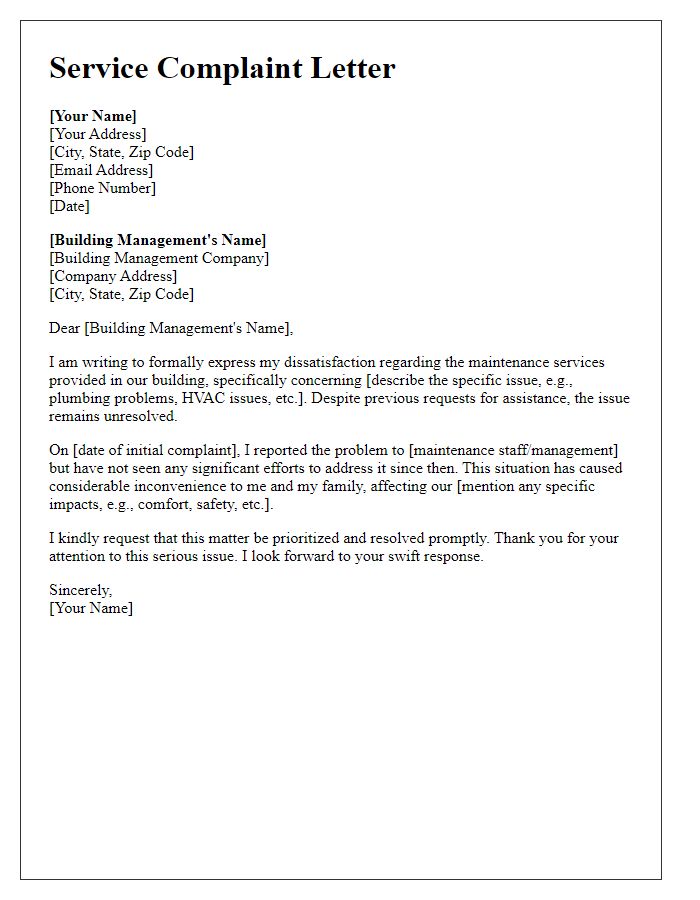
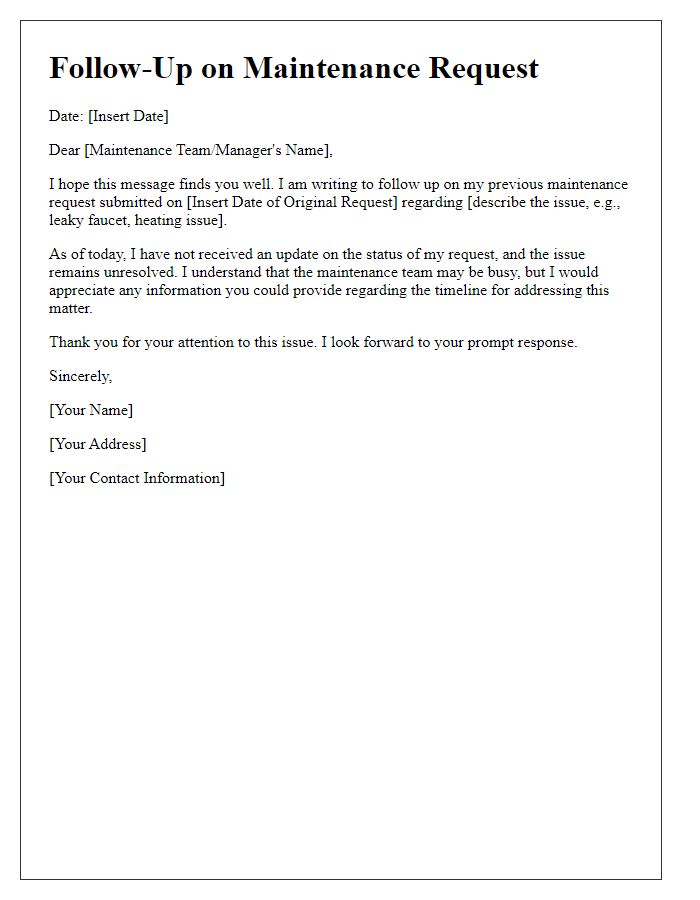
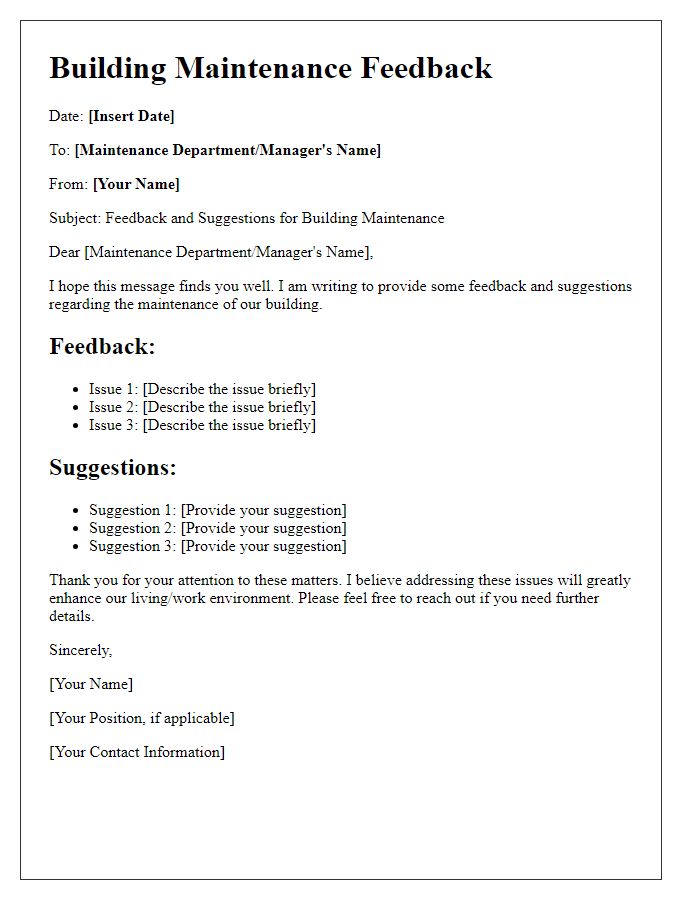


Comments